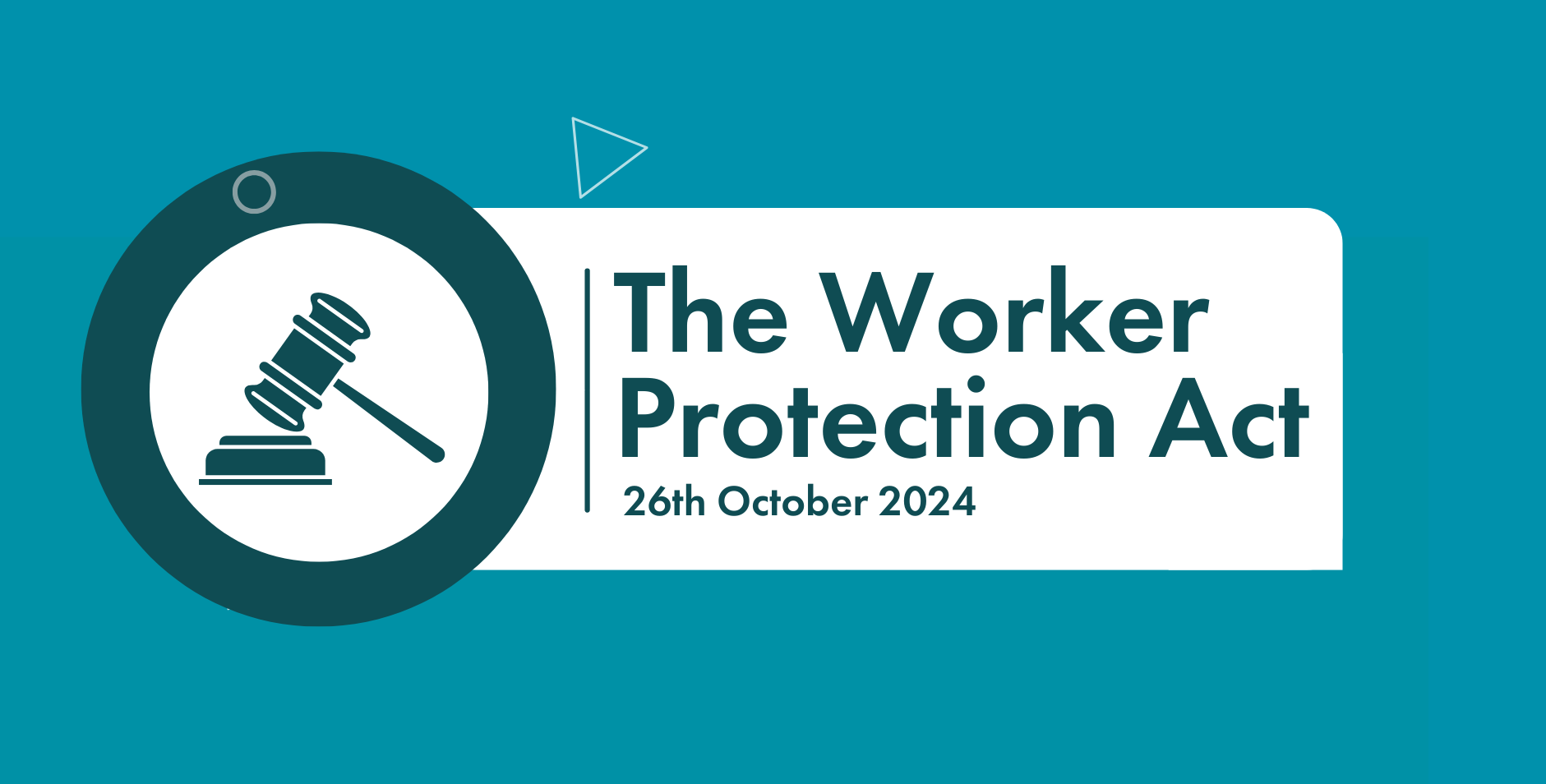The Worker Protection Act
25 Oct, 20243 minsThe Worker Protection Act will come into effect from 26th October 2024. The act, an ame...

The Worker Protection Act will come into effect from 26th October 2024. The act, an amendment to the Equality Act 2010, places heightened responsibilities on employers to ensure a safe, respectful, and harassment-free working environment. Specifically, businesses will now be legally obliged to take reasonable steps to prevent sexual harassment in the workplace.
This marks a significant shift in the UK’s employment law, reinforcing the government's commitment to creating safer workplaces and ensuring that all employees feel protected.
Key Changes for Employers Under the Worker Protection Act
The Worker Protection Act introduces several new duties and liabilities for businesses, and it's essential for employers to understand the implications:
- Proactive Prevention of Sexual Harassment
Under the Act, businesses must take reasonable preventative measures to stop sexual harassment before it occurs. This means employers are now responsible for preventing inappropriate behaviour rather than reacting to it after it happens.
Failure to do so could lead to claims against the employer, even if they were unaware of the harassment or if the harassment takes place outside of working hours. For example, on a staff night out.
- Third-Party Harassment Protection
One of the most significant updates is the reintroduction of protection against third-party harassment. This means that businesses can be held liable if their employees are harassed by customers, clients, contractors, or anyone else not directly employed by the company. Employers must take action if they know, or should reasonably have known, that harassment by a third party was likely to occur and did nothing to prevent it.
- Mandatory Training and Clear Policies
Employers are expected to implement comprehensive anti-harassment policies and provide mandatory training for all employees. This training should cover what constitutes sexual harassment, how employees can report it, and what procedures are in place to address reports.
- Increased Accountability for Senior Management
Senior leaders and managers must actively ensure that their workplaces comply with the Worker Protection Act. This includes creating an environment of respect and accountability. Employers who are seen to be failing in this duty can be held accountable through penalties, including potential compensation claims from affected employees.
- Strengthened Penalties for Non-Compliance
Employers who fail to meet their new obligations could face increased financial penalties. Compensation for victims may also rise, as tribunals will have greater powers to impose additional compensation if they find that employers have failed to take reasonable steps to prevent harassment.
How Businesses Can Prepare
To ensure compliance with the Worker Protection Act, businesses should:
- Review and Update Policies - Existing workplace policies on sexual harassment must be updated to reflect the new legal requirements. Ensure that clear reporting procedures and support systems are in place.
- Conduct Training Programs - Provide thorough anti-harassment training for all employees, including leadership, to ensure they understand what constitutes inappropriate behaviour and how to prevent it. The training should become a regular part of onboarding and ongoing professional development.
- Create a Safe Reporting Mechanism—Ensure employees feel safe reporting incidents of harassment without fear of retaliation or judgment. A confidential and transparent reporting process is crucial.
- Carry out a Sexual Harassment Risk Assessment - ensure there are measures in place to prevent harassment.
- Monitor Workplace Culture - Create a workplace environment that actively discourages harassment. Encourage open dialogue between employees, respect boundaries, and ensure swift action when any concerns are reported.
- Engage Legal and HR Support - Consult with HR experts or legal professionals to ensure your business is fully compliant with the Worker Protection Act’s requirements.
- Third Party Harassment – whilst employers are responsible for protecting employees from harassment from third parties, the more onerous part of it was dropped so current legislation doesn’t make employers liable for third party harassment.
- Compensation – should specify a 25% uplift if it’s found that employer has breached their duty to take reasonable steps to prevent sexual harassment.
By creating a respectful and safe working environment, employers not only avoid potential legal consequences but also contribute to a healthier, more productive workplace culture and increased employee retention.
Want to stay up to date with the latest employment and recruitment legislative changes? Join Meridian’s LinkedIn community specifically for business leaders here.














